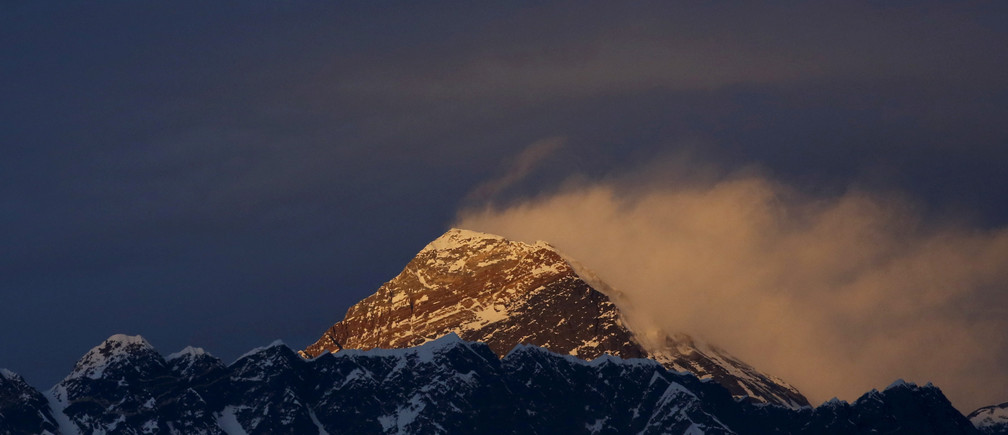A South African mountaineer reached the top of Mount Everest on Thursday, becoming the first black African woman to conquer the world’s highest mountain, her expedition organiser and her government said.
Saray N’kusi Khumalo, a 47-year-old e-commerce executive, scaled the 8,850-metre (29,035-foot) mountain after three failed attempts that were foiled by bad weather and a deadly earthquake in 2015.
“With her birth in Zambia, Rwandan bloodline and now a South African, this sister of Africa has achieved her goal of becoming the first black woman from Africa to summit Mount Everest,” her expedition organiser, Summits with a Purpose, said on Facebook.
Mira Acharya, a Nepal tourism department official, confirmed Khuwalo’s ascent, but did not say if she was the first black African woman to do so.
However, Mingma Sherpa of the Seven Summit Treks hiking agency, which provided local support to Khumalo, told the Thomson Reuters Foundation that the record feat was one “hundred percent” true.
“Congratulations to iMbokodo (strong woman) Saray Khumalo for being the first Black African Woman to reach the top of the world by conquering Mount Everest,” South Africa’s government said on Twitter.
“Bosso ke wena!” it added, which means “you are the boss” in the local Sesotho language.
Khumalo, who has conquered five mountains, including Mount Kilimanjaro in Tanzania, Aconcagua in Argentina and Mount Elbrus in Russia, uses her expeditions to raise funds for children’s education and libraries in Africa.
“Giving up is not an option,” Khumalo told South African television from Kathmandu in Nepal.
“I was aware, taking on the project that it was big and it needed to be done. I think that was one of the reasons I kept pushing, even after failing before.”
Khumalo is on a quest to conquer the highest peaks on each continent.
She has also climbed Mount Kilimanjaro in Tanzania, Aconcagua in Argentina and Mount Elbrus in Russia.
“Summiting Everest or any other mountain from here on should be the norm because other people are doing it — why not us?” she said in her first interview since her climb.
“It doesn’t matter where you come from, or what curve ball has been thrown at you, keep going because the summit is just next door, it is just the next step.”
One member of Khumalo’s team — Seamus Lawless from Ireland — died on the descent.
“One life… is one too many,” Khumalo said. “It is very unfortunate but it is the reality of climbing.”
Khumalo said she had talked to her two sons, aged 16 and 21, about the dangers involved.
“They know I am not going to take risks that are unreasonable,” she said.
“I took longer than anticipated (to come down). We didn’t take a cell phone to the summit… so I only spoke to them when I got to base camp, but they were very happy.”
She also dedicates her quests to “women and girls, daughters of the African soil who dare to dream”, Khumalo says on her website.
Nepal is home to eight of the world’s 14 highest mountains. The climbing season ends in May and hundreds of climbers are currently on Everest.
In 2003, Sibusiso Emmanuel Vilane, a South African park ranger, became the first black person to reach Mount Everest summit, according to Himalayan archives that record major climbs.
Everest, which straddles the Nepal-China border, has been climbed by nearly 5,000 people since it was first scaled by New Zealander Sir Edmund Hillary and Tenzing Norgay Sherpa in 1953, according to a post by Everest blogger Alan Arnette.
World Economic Forum

